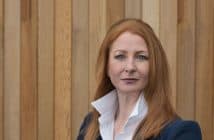House prices in Ireland have plunged so much in the last six years that houses are now undervalued, according to a prestigious international think tank.
The Organisation for Economic Co-operation and Development (OECD) assessment comes as values have halved since the peak.
In a new report, Ireland has been bracketed in with Greece, Portugal, Slovenia, Slovakia, the Czech Republic and Japan in a list of countries where prices are judged to have fallen further than is warranted.
The Paris-based think tank has used rents and the amount of income it takes to buy a typical house to reach its conclusion about the undervaluation of property in these countries.
Calculations based on figures from the Central Statistics Office show that the average price of a property nationwide is now around €156,000.
Figures from the CSO earlier this week show that prices in April rose countrywide and in Dublin – the first time in six months that this has happened.
Property prices have remained relatively stable over the last 12 months, the CSO index indicates. Prices are down 50pc since the market peaked at the start of 2007.
Economist with Goodbody Stockbrokers Dermot O’Leary said prices have fallen so much that residential property was now good value.
Based on an average wage of €36,000 it now took around 4.5 times that wage to buy a typical house.
This works out at around €160,000 for a house, which is just under the average price nationally at the moment.
This meant that property prices were back at the levels they were at the end of the 1990s.
During the height of the property mania it was taking nine times the average wage to buy a residential property – or €324,000.
Mr O’Leary said if the rent that a typical house generates is used, “residential property once again looks attractive, there were more housing transactions going on than were being recorded by the CSO as its index does not include cash sales. Up to half of sales are for cash at present.
“After a record crash, valuations have returned to more normal levels and a new cycle may be about to take hold,” Mr O’Leary said.
And new figures yesterday show that the number of new houses being built has increased by almost a fifth in the first three months of 2013, according to the Construction Industry Federation.
A total of 965 units were started around Ireland in the first quarter of 2013.
This is up 159 units or 20pc from the same period in 2012 when a total of 806 new housing units commenced.The level of house building has particularly increased in Dublin and Galway.
Meanwhile, the European Central Bank meets today but is not expected to cut interest rates.
Last month’s reduction in rates saw 375,000 homeowners with trackers having their repayments cut. In the case of a €200,000 mortgage, repayments were cut by €30 a month.
But rather than pass the interest rate cut to variable rate customers, hikes in variables by EBS, AIB and Haven take effect from this week. And last week Danske Bank said it was putting up its variable rate by up to 1pc.
Other lenders have failed to pass on May’s ECB cut to homeowners with variables.



